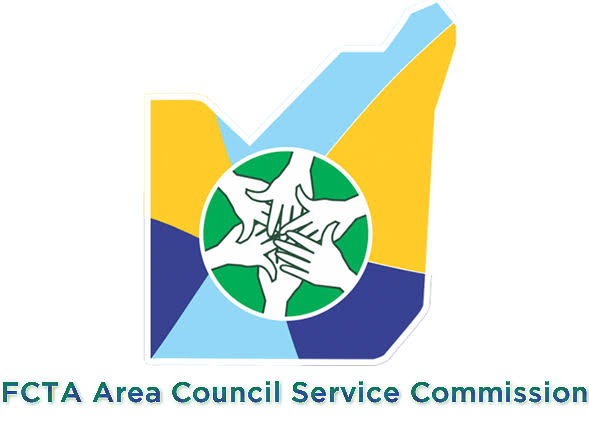The Federal Capital Territory Administration (FCTA) has sent shockwaves through Abuja’s real estate landscape with its recent announcement to take possession of 4,794 properties starting Monday, May 26, 2025. This drastic measure, approved by FCT Minister Nyesom Wike, stems from the non-payment of ground rent by property owners, some of whom have defaulted for as long as 43 years. The move, grounded in the legal framework of the Land Use Act, has sparked debates about land ownership, government authority, and the financial obligations of property holders in Nigeria’s capital city.
Ground Rent and Its Importance in Abuja
Ground rent is an annual fee imposed on property owners in the Federal Capital Territory (FCT) as part of the terms of their Right of Occupancy (R of O) agreements. According to the FCTA, this payment, due every January 1, is a legal requirement to maintain ownership of allocated land in Abuja. The revenue generated from ground rent is critical for funding infrastructure and development projects in the FCT, ensuring the capital city remains a functional and aesthetically appealing hub.
However, non-compliance has been a persistent issue. As of March 2025, a staggering 8,375 property owners owe the FCTA a combined ₦6.97 billion in unpaid ground rent. Of these, 4,794 properties have been singled out for revocation due to defaults spanning 10 to 43 years. The FCTA’s decision to act decisively follows years of warnings, culminating in a 21-day grace period issued in 2023 for owners to settle their debts. That window has now closed, paving the way for the government’s bold move to reclaim these properties.
Land Use Act and Ministerial Authority
The FCTA’s actions are rooted in Section 28, Subsections 5(a) and (b) of the Land Use Act of 1978, which governs land ownership in Nigeria. This law empowers the government to revoke land titles for breaches of the terms of occupancy, such as failure to pay ground rent. In this case, the FCTA has cited non-payment as a clear violation, justifying the revocation of titles for the 4,794 properties.
The announcement, made public on March 17, 2025, by FCT Minister Nyesom Wike, underscores the government’s commitment to enforcing compliance. Wike, known for his no-nonsense approach to governance, has emphasized that the FCTA will not tolerate further delays in settling these debts. The absence of any court injunctions blocking the move has given the FCTA a clear path to begin sealing off properties and restricting access starting May 26, 2025.
The Affected Properties: High-Profile Districts and Notable Organizations
The properties targeted for reclamation are not your average plots of land. They are located in some of Abuja’s most prestigious and expensive districts, including:
-
Central Area: The heart of Abuja’s commercial and administrative activities.
-
Garki I and II: Vibrant residential and commercial zones.
-
Wuse I and II: Known for their bustling markets and business hubs.
-
Asokoro and Maitama: Elite neighborhoods home to diplomats, government officials, and affluent residents.
-
Guzape: An emerging upscale district popular among the city’s elite.
Among the properties facing revocation is the under-construction national headquarters of the Peoples Democratic Party (PDP), a significant political entity in Nigeria. This has added a political dimension to the controversy, with some speculating that the FCTA’s actions could be perceived as targeting opposition strongholds. However, the list of defaulters is far-reaching, encompassing both public and private entities.
What Happens Next?
Starting Monday, May 26, 2025, the FCTA will begin sealing off the 4,794 properties and restricting access to them. This means owners will lose physical and legal access to their land until further decisions are made. The FCTA has stated that it will determine the future use of these properties, which could range from reallocation to new owners, conversion for public use, or other development purposes.
For property owners who owe less than 10 years of ground rent, the FCTA had previously offered a 21-day grace period to settle their debts. However, this window has expired, leaving no immediate recourse for defaulters. Those whose titles have been revoked can appeal to the FCT Minister for reinstatement, but approval is not guaranteed and will likely depend on prompt payment and compliance with other conditions.
What Property Owners Can Do
For those affected by the revocation, the path forward is limited but not entirely closed. The FCTA has indicated that owners can appeal to the FCT Minister for reinstatement of their titles. To improve their chances, affected owners should:
-
Settle Outstanding Debts: Prompt payment of all outstanding ground rent, including penalties, is likely a prerequisite for any appeal.
-
Engage Legal Counsel: Property owners may benefit from consulting lawyers familiar with the Land Use Act to navigate the appeal process.
-
Document Compliance: Providing evidence of past payments or attempts to resolve disputes could strengthen an appeal.
-
Act Quickly: With the FCTA moving swiftly to seal off properties, time is of the essence for those seeking to retain their land.
For other property owners in Abuja, this serves as a wake-up call to ensure their ground rent payments are up to date. The FCTA’s actions demonstrate that it is prepared to take drastic measures to enforce compliance, and no property—regardless of its owner’s status—is exempt.
Conclusion: A Turning Point for Abuja’s Real Estate
The FCTA’s decision to reclaim 4,794 properties over unpaid ground rent is a bold and controversial move that will reshape Abuja’s real estate landscape. While the government’s actions are legally grounded and aimed at enforcing compliance, they have sparked debates about fairness, accountability, and the future of land ownership in Nigeria’s capital. For affected property owners, the clock is ticking to appeal and settle their debts. For others, this serves as a reminder to stay compliant with ground rent obligations to avoid similar consequences.
As Abuja continues to grow as a political, economic, and cultural hub, the FCTA’s actions underscore the importance of balancing development goals with the rights and responsibilities of property owners. Whether this move will lead to greater fiscal discipline or further disputes remains to be seen, but one thing is clear: the ground rent saga is far from over.
Join our Whatsapp channel to stay updated always!


